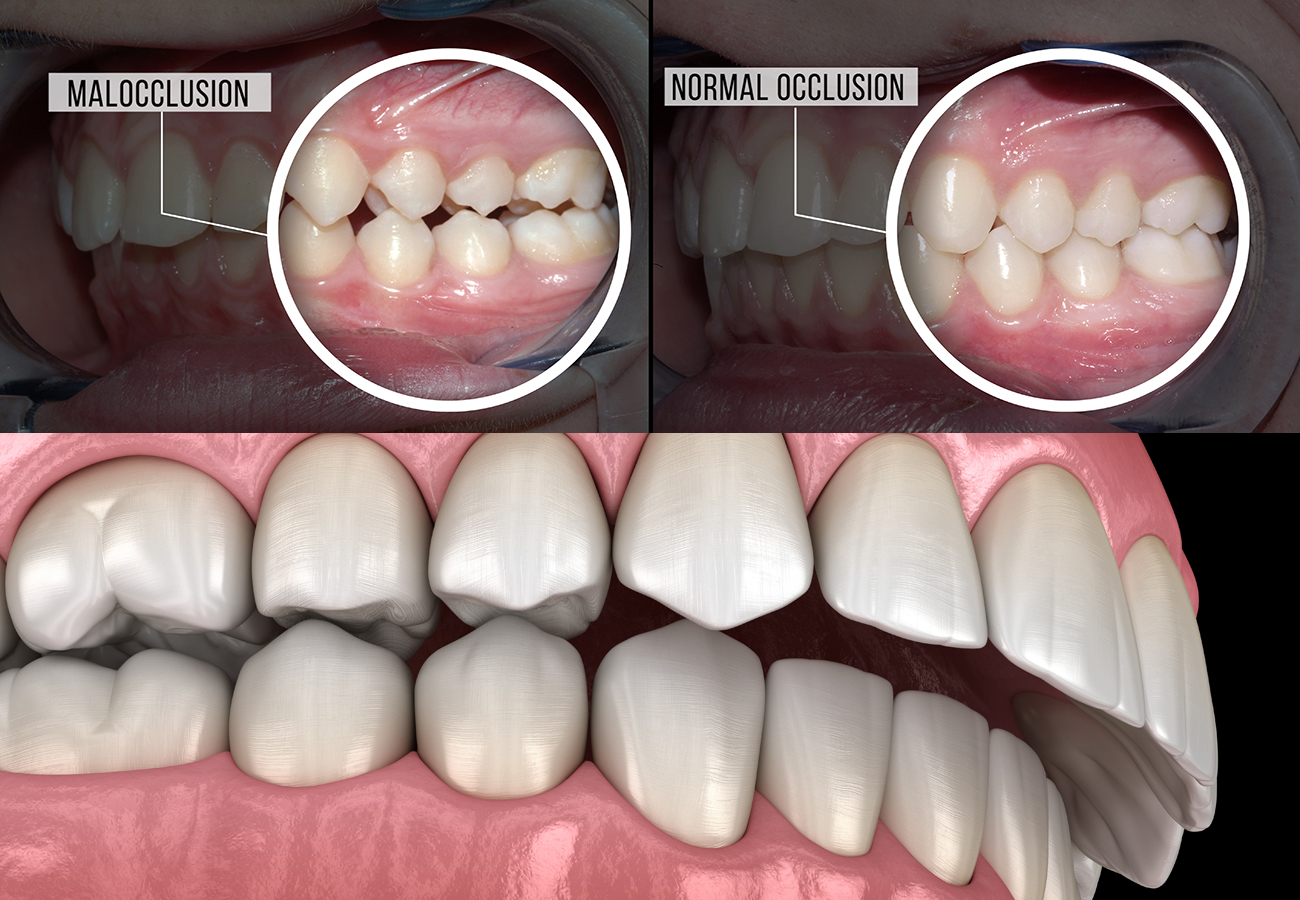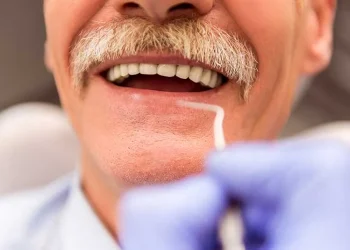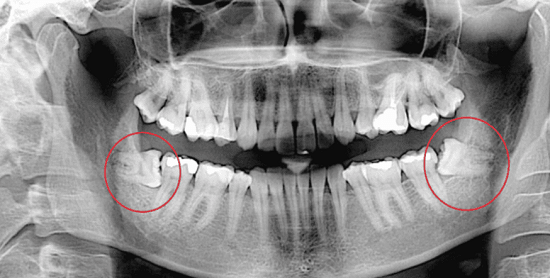Contents
- 1 Dental Implants vs Braces – Which Should Be First?
- 2 Braces for Underbite Treatment
- 3 Dental Implants for Underbite Treatment
- 4 In conclusion, which method is better for underbite treatment?
Dental Implants vs Braces – Which Should Be First?
Underbite is a dental condition where the lower teeth protrude in front of the upper teeth. It can cause difficulty in biting and chewing, speech problems, and jaw pain. If you have an underbite, you may be wondering what the best treatment option is for you. In this article, we will compare braces and dental implants for the treatment of underbite.
Braces for Underbite Treatment
What is braces?
Braces are one of the most frequently used treatment options for underbite. They work by gradually shifting the position of both the teeth and the jaw. The treatment involves the use of brackets attached to the teeth and connected by wires. The wires apply pressure to the teeth, which moves them into the correct position over time.
Advantages of Braces in Underbite Treatment
Effective Treatment
Braces are a reliable option for correcting underbite. They work by gradually shifting the position of both the teeth and the jaw. The treatment involves the use of brackets attached to the teeth and connected by wires. The wires apply pressure to the teeth, which moves them into the correct position over time. This results in an effective treatment for underbite, which can improve your overall dental health.
Customizable Treatment
Braces are highly customizable, which means that your orthodontist can tailor the treatment plan to suit your individual needs. Depending on the severity of your underbite, your orthodontist may use different types of braces, such as metal braces, ceramic braces, or clear aligners. This ensures that you receive the most effective treatment for your specific condition.
Improved Dental Health
In addition to correcting underbite, braces can also improve your overall dental health. Misaligned teeth can cause other dental problems, such as tooth decay, gum disease, and bad breath. By correcting the position of your teeth, braces can help to prevent these problems from occurring and maintain the health of your mouth.
Reasonable Price
Compared to other treatment options for underbite, such as dental implants or jaw surgery, braces are a more economic option. While the cost of braces varies depending on the type of braces used and the length of the treatment, they are generally more affordable than other treatments. This makes braces a suitable option for those who are looking for an effective treatment without breaking the bank.

The Disadvantages of Braces in Underbite Treatment
Despite their effectiveness, braces do come with some disadvantages.
Lengthy Treatment Process
One of the most significant disadvantages of braces is the length of the treatment process. It can take several years for the braces to fully correct the underbite, and during this time, the patient will need to visit their orthodontist regularly for adjustments. This means that the treatment process can be time-consuming and require a significant commitment from the patient.
Discomfort and Pain
Braces can cause discomfort and pain, particularly during the early stages of treatment. The wires and brackets can irritate the cheeks and lips, and the pressure applied to the teeth can cause soreness and discomfort. While these side effects are usually temporary, they can be a significant source of discomfort during the treatment process.
Diet Restrictions
Patients undergoing braces treatment for underbite will need to follow a restricted diet to prevent damage to the braces and ensure that the treatment is effective. This means avoiding hard, sticky, or chewy foods that can damage the wires and brackets. Patients may also need to cut their food into small pieces to avoid putting too much pressure on the braces.
Oral Hygiene Challenges
Maintaining good oral hygiene can be challenging for patients with braces. The brackets and wires can make it difficult to clean the teeth properly, which can lead to a buildup of plaque and the risk of tooth decay. Patients will need to brush and floss regularly and may need to use special tools to clean around the braces.
Appearance Concerns
Some patients may be concerned about the appearance of braces and the impact they will have on their social and professional life. While modern braces are more discreet than their predecessors, they are still visible and can be a source of self-consciousness for some patients.
Dental Implants for Underbite Treatment
Dental implants are a popular option for treating underbite, particularly if the condition is caused by missing or damaged teeth. Unlike braces which are typically used for cosmetic purposes, dental implants can not only improve the alignment of the teeth and jaw but also provide a long-lasting solution.
Dental implants involve the surgical placement of titanium screws into the jawbone which act as anchors for the teeth. These screws are sturdy and can withstand the forces of chewing and biting, making the implants a reliable solution for underbite.
Advantages of Dental Implants in Underbite Treatment
Long-Lasting Solution
Dental implants offer a long-lasting solution for underbite, particularly if the condition is caused by missing or damaged teeth. Unlike braces, which require regular maintenance and adjustment, dental implants are designed to last for many years. The implants consist of titanium screws that are surgically placed into the jawbone. These screws act as anchors for the teeth and are designed to withstand the forces of biting and chewing.
Improved Bite Function
One of the main advantages of dental implants in underbite treatment is improved bite function. Dental implants can help to correct the alignment of the teeth and jaw, which can improve your ability to bite and chew food. This can have a significant impact on your overall quality of life, as it can make it easier to enjoy your favorite foods and maintain a healthy diet.
Preserves Bone Tissue
Another advantage of dental implants is that they help to preserve the bone tissue in your jaw. When teeth are missing, the bone tissue can deteriorate over time. This can lead to further dental problems and even changes in the shape of your face. Dental implants help to stimulate the bone tissue, which can prevent bone loss and maintain the overall health of your mouth.
Improved Speech
Underbite can cause speech problems, particularly if the lower teeth are protruding significantly. Dental implants can help to correct the alignment of the teeth and jaw, which can improve your ability to speak clearly. This can have a positive impact on your social and professional life, as it can improve your confidence and communication skills.
Natural-Looking Results
Dental implants are designed to look and feel like natural teeth. The implants are custom-made to match the shape and color of your existing teeth, which can create a seamless and natural-looking result. This can improve your overall appearance and boost your self-confidence.
The Disadvantages of Dental Implants in Underbite Treatment
Invasive Procedure
One of the most significant disadvantages of dental implants is that they require a surgical procedure. The process involves the placement of titanium screws into the jawbone as anchors for the teeth. This procedure can be complex and require a longer recovery time than other treatment options, such as braces. Additionally, the process may involve anesthesia, which can carry its own risks.
Cost
Dental implants can be more expensive than other treatment options for underbite, such as braces. The cost of dental implants can vary depending on the number of implants needed, the materials used, and the complexity of the procedure. This can make dental implants inaccessible for some patients who cannot afford the cost of the treatment.
Risk of Infection
Like any surgical procedure, dental implants carry the risk of infection. While the risk is relatively low, it is still a concern for patients undergoing the procedure. Infection can cause complications, including implant failure, and may require further treatment.
Lengthy Treatment Process
While dental implants offer a long-lasting solution for underbite, the treatment process can be lengthy. The procedure involves the placement of the titanium screws into the jawbone, which can take several months to heal fully. Additionally, the patient will need to visit their dentist regularly for follow-up appointments to ensure that the implants are functioning correctly.
Implant Failure
While dental implants are designed to be a long-lasting solution, they can fail for various reasons. Factors that can lead to implant failure include poor oral hygiene, smoking, and bruxism (teeth grinding). If an implant fails, it may require additional surgery to remove or replace the implant, which can be costly and time-consuming.
In conclusion, which method is better for underbite treatment?
Both braces and dental implants can be effective treatment options for underbite. Braces are a non-invasive, gradual approach that can correct the alignment of the teeth over time. This means that patients can see progress as their teeth move and the underbite is corrected. Braces are also a good option for patients who may be hesitant to undergo a surgical procedure.
On the other hand, dental implants are a surgical procedure that can provide a long-lasting solution. This can be especially helpful if the underbite is caused by missing teeth. Dental implants can not only correct the alignment of the teeth but can also replace missing teeth, resulting in a healthier and more attractive smile.
It is important to note that the best treatment option for underbite will depend on the severity of the condition, your overall dental health, and your personal preferences. Some patients may prefer the gradual progress of braces, while others may prefer the more immediate results of dental implants.
It is important to consult with your orthodontist or dentist to determine which option is right for you. They will be able to assess your individual needs and provide a personalized treatment plan to help correct your underbite and improve your oral health and overall wellbeing.














